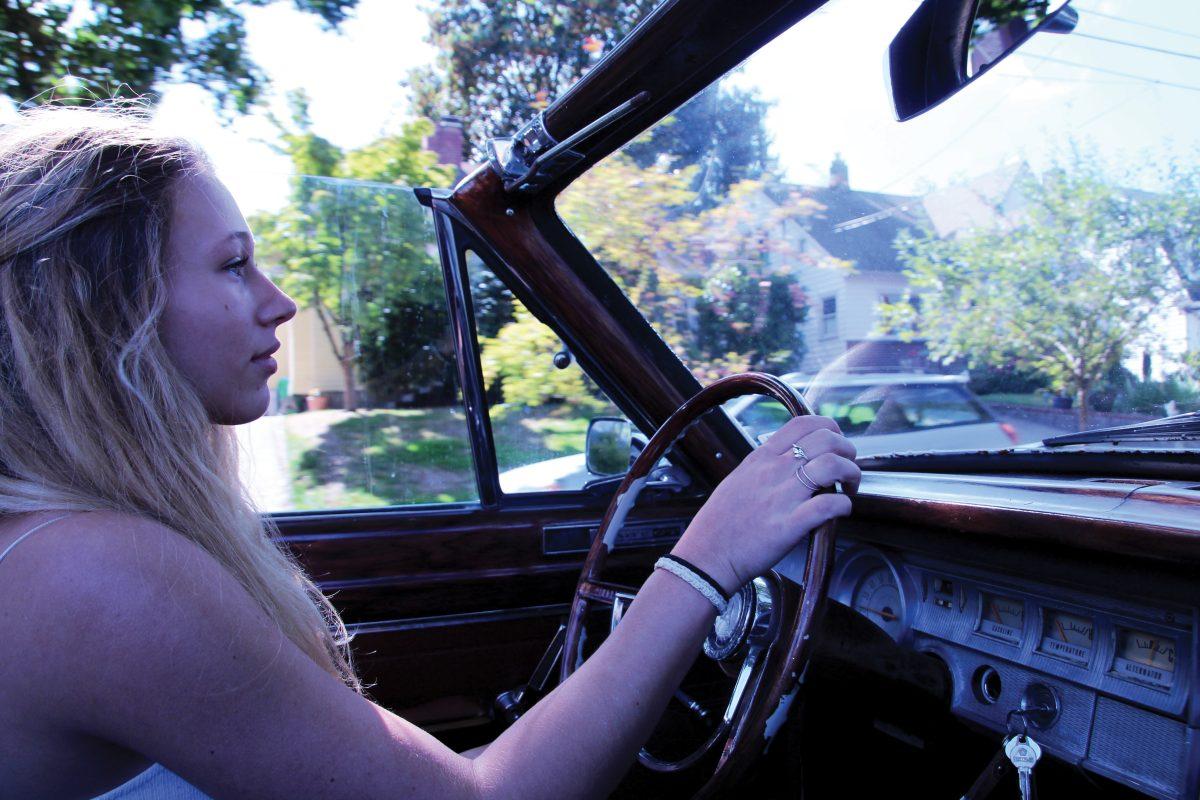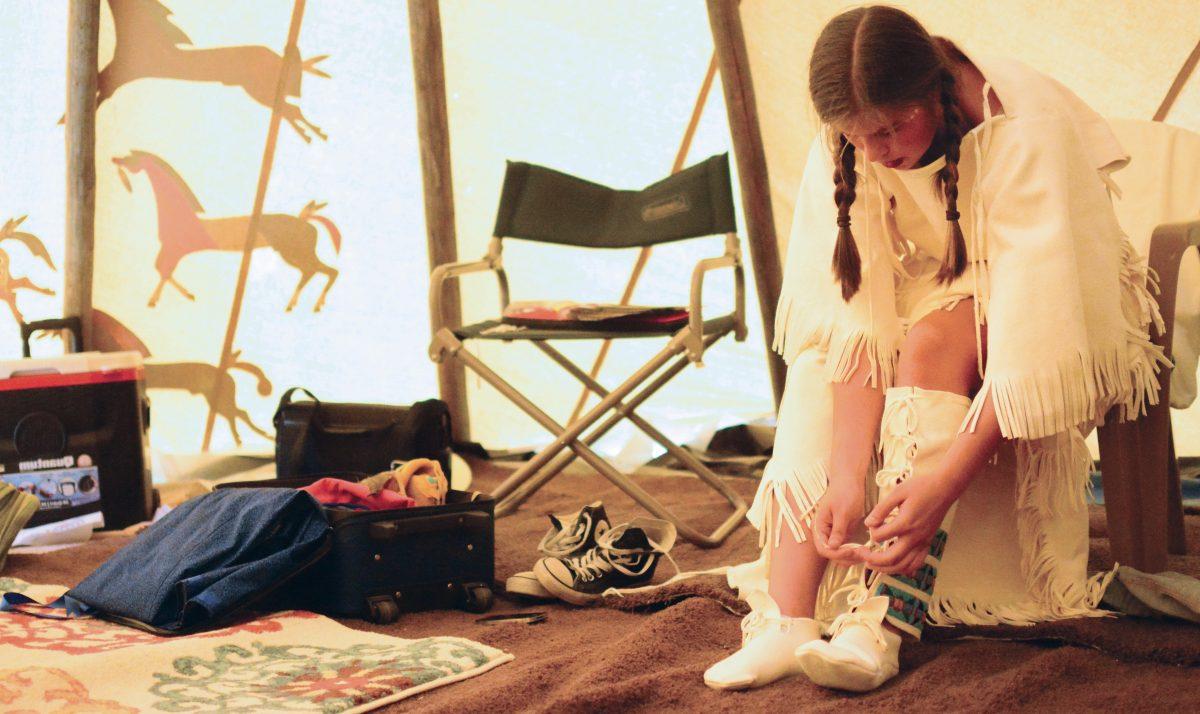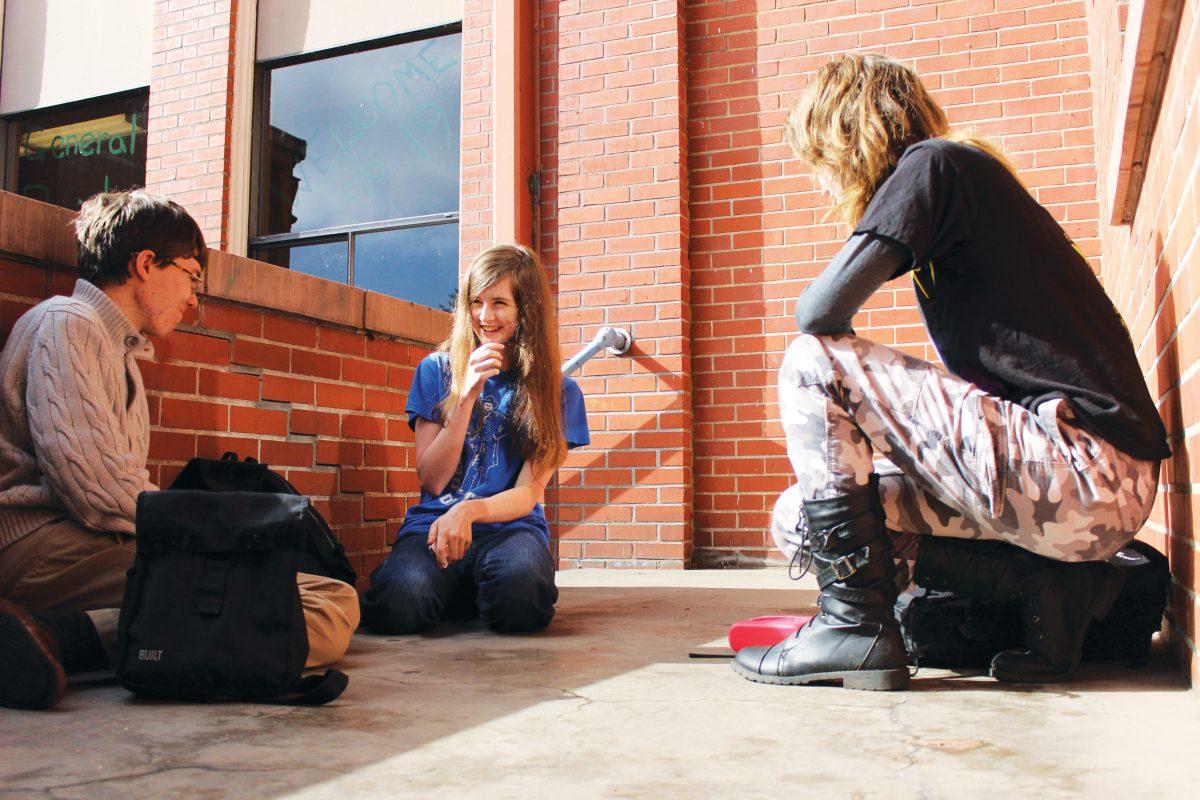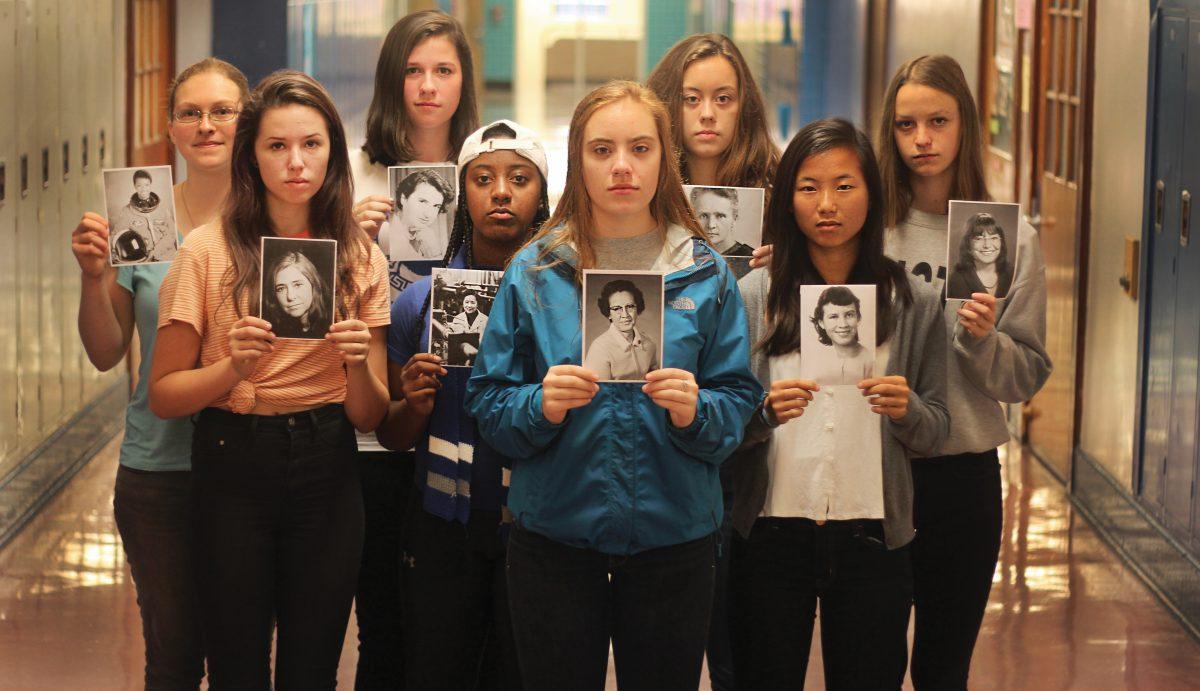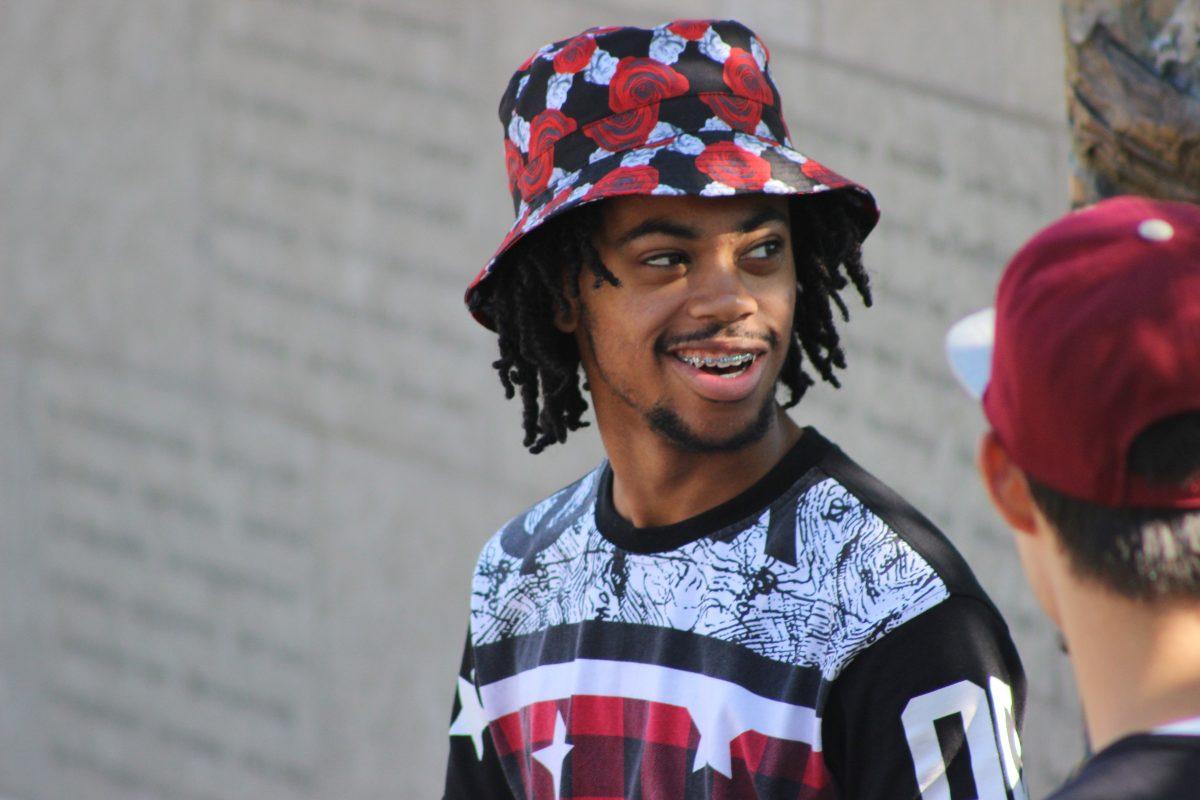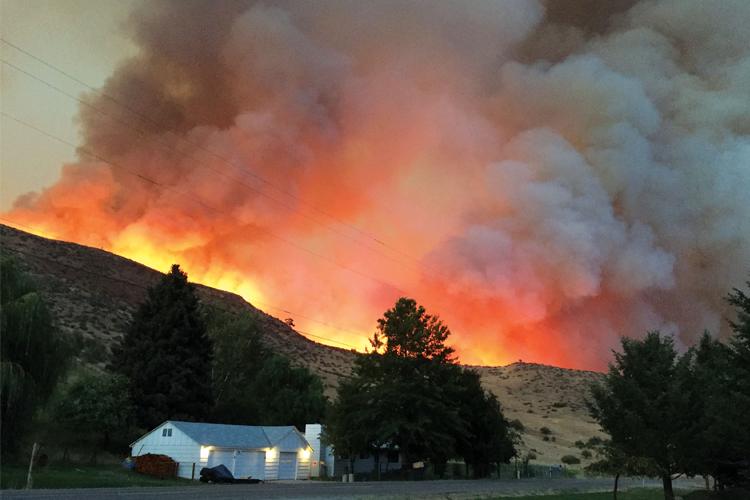
It’s late July and Emma Findling wakes up in the two-story building she’s sharing with fellow students during a trip in Arusha, Tanzania.
She skips a morning shower – she’ll have to wait until the electricity returns – and goes downstairs to eat some breakfast. Within a few minutes, she boards the bus that will take her down the steep, rocky hill to a tiny hospital that looks like a house.
Inside, a man with epilepsy waits to see a doctor. There’s a toddler covered in burns. A 10-year-old woman gets a wound on her ankle cleaned as Findling and some of the other students take turns holding her hand.
Most of the patients speak Swahili, so Findling can’t speak to them because she doesn’t know the language. But she uses her instinct to make sure they have what they need.
“People live in huts and you hear about that kind of stuff on TV and the radio but until you really see it, its totally different,” she says. “So I think its motivating to want to kind of help…I definitely want to go back.”
Now a junior at Grant, Findling has set her sights on becoming a doctor. She’s taking a full set of science classes and took the summer trip to gain experience in another setting. Her goal? To become a cardiothoracic surgeon.
“I know this is what I’m going to do, and I know how to do it so I’ve got to do it…having motivation helps.” – Emma Findling
“Emma, luckily for her, has really found an interest, but also has an avenue to explore that interest,” says Neil Wiegand, a family friend and mentor.
At 17, Findling has centered much of her life around joining the field of medicine. She has a compassionate nature and loves helping people in need. Women make up only about 19 percent of surgeons in the US, but Findling doesn’t flinch. She’s set on reaching her goal.
“I can picture myself where I need to be and I know what I need to do to get there,” she says. “I would like to be in the medical field no matter what.”
Findling was born on Oct. 9, 1998 to Michelle Wise and Marlene Findling. Her sister, Hannah Findling, is 23. Her parents split up when she was 3. Marlene and Emma Findling describe their relationship as more of a friendship rather than the typical child-parent relationship.
An avid volunteer at Grant, Marlene Findling embraces the Jewish mandate, “Tikkun Olam,” which means “repair the world.” She worked to instill its meaning into Emma Findling since she was a child.
“It’s what I believe in my heart that every person has an obligation to do something, no matter how small, to make the world a better place,” says Marlene Findling.
As a child, Emma Findling was carefree. “She was a goofball kid,” her mom recalls.
Findling attended Alameda Elementary School and later Beaumont Middle School. Though she enjoyed her math and science classes, school wasn’t a strong interest.
“I’ve always been fairly lazy when it comes to school and kind of very aware that none of it mattered in elementary and middle school,” she says. “I just didn’t feel the need to try.”
The social side of school wasn’t a problem. Findling made friends easily, and often reached out to students who were left out. That’s something she still does today.
“I just kind of try to treat everyone equally and give everyone equal attention because everyone’s important,” she says.
By 10, Findling’s interest in medicine began to form. She started doing virtual surgeries on a computer with her friend. Her interest only grew when she met Wiegand, a physician’s assistant at a hospital in Seattle who is the nephew of a family friend.
Findling’s first memory of him is from a Thanksgiving dinner when she was in fifth grade. At the dinner table, Wiegand went into depth about thyroid cysts and showed everyone graphic pictures of the medical condition.
“Everyone else was so pissed at him,” recalls Findling. “And I just remember being like, ‘That’s so awesome.’”
Findling and her mother sometimes visited Wiegand in Seattle as part of family get-togethers, and they got to know him better. Many of their conversations centered around medicine.
When Findling expressed her interest to Wiegand, he was immediately on board. “Our relationship became more serious and career based after that,” recalls Findling.
Wiegand then suggested to Findling that she shadow him at work to gain experience in the field. “Emma’s strong point is her ability to empathize with other people,” he says. “That’s the reason I offered her a shadowing position…because she has what it takes to do what she wants to do.”
She spent a week during the summer before her freshman year of high school living with Wiegand in his home. She went to work with him each day.
She observed Wiegand as he prepared for surgeries and she shadowed him as he checked in with patients.
“Pretty much immediately after I got over the rush of seeing the surgery and just being in the environment, it was like I really want to be helping and doing this,” says Findling.
As Wiegand observed Findling, he picked up on her attentiveness to patients. “Emma has an…uncanny ability to listen to people,” he says. “And be able to discern whether she responds to try to help them or just respond to try to make them feel heard.”
When Marlene Findling picked her daughter up at the end of the week, she couldn’t stop talking about the experience. “A lot of what she said, many times, was: ‘That was the best week of my life,’” says Marlene Findling. “She was so pumped up.”
Wiegand bought Emma Findling a few textbooks on medical terminology and she studied the books constantly, even teaching herself the Latin roots of the words.
“I didn’t do it to get ahead,” she says. “I did it because I thoroughly enjoyed it.”
Once the school year started, Marlene Findling had to remind her daughter to stop reading the books and do her homework instead.
Emma Findling’s interest in school had been steadily increasing and when she started at Grant, she received a sudden wake-up call to do better. She attributes this to her growing interest in medicine and the sciences.
“I remember thinking that like, ‘Ok, I’m going to do well now,’” she says. “I know this is what I’m going to do, and I know how to do it so I’ve got to do it…having motivation helps.”
Findling also started doing volunteer jobs. She signed up for the Red Cross Club at Grant and then began volunteering twice a month there. She watched medical shows like Grey’s Anatomy and House, and she donated blood once every two months as soon as she was eligible.
Inspired by her sister’s time spent in Ecuador, Findling looked up volunteer opportunities abroad. A trip to Tanzania with an organization called “Projects Abroad” came up. But the only problem was that she was 15 at the time and needed to be 16 to go.
“It was like ‘When I’m 16, I gotta do this,’” says Findling, and the idea stuck with her. But there was still the financial aspect and gaining her parents permission, both of whom needed some convincing.
“She didn’t know anyone she was going with, she didn’t know any of the other volunteers…Tanzania is 10,000 miles away…there were so many unknowns,” says Marlene Findling.
Ultimately, they decided the experience was worth the risk.

Emma Findling took up extra babysitting jobs and her mom, Michelle Wise, picked up a few freelance jobs to finance the roughly $5,000 trip.
In July, Findling made the 20-hour trip on her own. She and the other volunteers spent the first two weeks doing workshops led by doctors in a conference room in the hospital. Afternoons and weekends were reserved for cultural activities, ranging from a safari to a drumming and dancing seminar.
The next two weeks, Findling and the volunteers worked at hospitals for five hours a day, beginning in the morning. Afternoons were spent playing cards or talking with the other volunteers and her host family.
They made trips to orphanages where they set up a pharmacy and handed out medicine. Afterwards, they played with the children living there.
“They’re all the sweetest, happiest kids ever,” she says.
Looking back on the trip, Findling can recall every detail. It was an experience that only further confirmed her goals. “That’s just one country in Africa,” Findling says. “Most all of them need volunteers and need people, so I think it kind of made me want to be a doctor for myself, because I loved it, but also for, like, the entire world because you’re so needed absolutely everywhere.”
Her junior year courseload includes two science classes: Anatomy and Physiology and Principles in Biomedical Science.
It’ll be 12 years before she’ll be able to fully practice medicine. But that hasn’t stopped her from visualizing who she wants to be when she gets there.
“I think the ethical aspect of medicine is kind of underrated,” she says. “People really just think about it as the medicine and diagnosing and surgery and just all the physical stuff. But I think it’s super, super important to focus on…the emotional and ethical kind of aspect of it in terms of just making people feel comfortable.” ◊






































